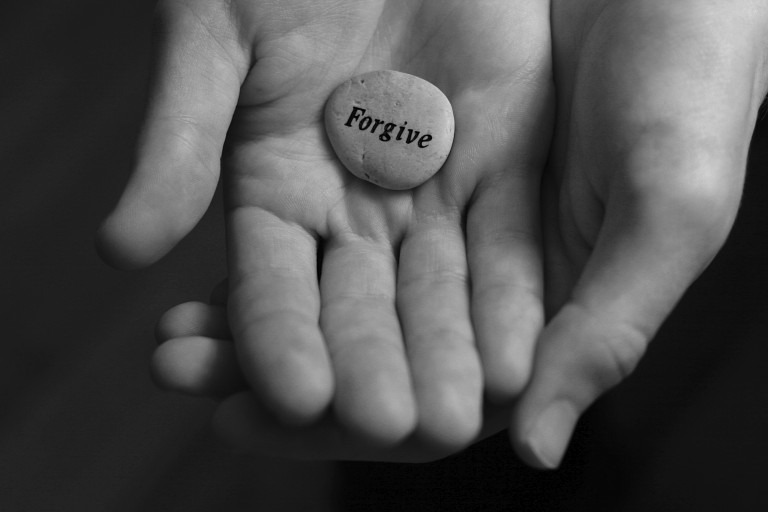Forgiveness liberates the soul, it removes fear. That’s why it’s such a powerful weapon.—Nelson Mandela
The other day, somebody at work apologized for something they said to me. I responded by saying, “I forgive you.” I couldn’t help but notice how awkwardly my response hung in the air. It felt strange for me to say those words, and it was clearly awkward for my colleague to receive them.
The language of love and forgiveness is often nonexistent in the workplace. Yet the foundation for effective leadership comes from a deep awareness of love and forgiveness in our own lives. So why do we talk so little about something that is so important to our evolution as individuals and leaders? Are we afraid of losing the upper hand in the relationship in a competitive workplace culture? Does vulnerability signal weakness, and forgiveness signal vulnerability? Do we feel the need to put up a wall in the name of professionalism?
Those are some of the reasons for our failure to talk about forgiveness at work. But mostly, it boils down to fear and exposure. We’re always on guard. We don’t want to be vulnerable because we fear somebody might take advantage of us. We’re afraid of exposing a part of us that says we are sensitive enough that somebody was able to hurt us. To truly forgive someone, we must be humble enough to acknowledge what happened and then we have to be open enough to actually receive that apology.
How to Make Forgiveness Part of Your Office Culture
We can create a culture where forgiveness is practiced and valued by stepping into the vulnerability that surrounds it and moving beyond our prejudices. It starts simply.
- First you’ll have to acknowledge that people you work with hurt your feelings. You also need to acknowledge that you can hurt and offend others. Being aware of that instead of writing it off is half the battle.
- Then you might want to prepare your colleagues for the fact that you may ask for their forgiveness at some point. You don’t want them to be blindsided. Sharing a blog, video or article on forgiveness would be a great way to set the stage in an innocuous way. Who knows? It might even spur a colleague to apologize to you for something.
- When it’s time to apologize to somebody or to start a discussion about forgiveness, prepare ahead. Write out what you think you want to say, either word for word or touching on the main points. Treat this like a presentation you want to nail–but leave room to be authentic.
- Finally, give yourself the chance to work through whatever you have experienced in the past. Often times we may feel exposed and vulnerable and that could bring about fear or shame. Having a trusted friend to turn to is very helpful in organizing thoughts around tough topics like this.
Think of Forgiveness as an Exercise
Let’s look at Nelson Mandela, who I quoted above and who famously forgave the captors that had imprisoned him for 27 years. You might not know that he was also the subject of a groundbreaking study on transformational leadership. In his paper, The Art of Forgiveness: Differentiating Transformational Leaders, Manfred Kets de Vries compared Mandela with another African leader, Robert Mugabe. Mugabe is infamous for holding bitter grudges against those who oppose him in Zimbabwe. From that comparison, among others, de Vries argues that forgiveness gives leaders–and their countries or organizations–the capacity to take risks, be creative and become transformational.
“Truly transformational leaders are acutely aware of the cost of animosity,” notes de Vries. “They realise the havoc that can be created by an unforgiving attitude… holding grudges is a form of arrested development; it holds people back.”
When we do not allow ourselves to experience forgiveness, be forgiven, forgive others, and forgive ourselves, something happens to our emotional well-being. I think of forgiveness as an exercise that our hearts need in order to be healthy and strong. When we don’t practice forgiveness, the heart–like any other muscle–can weaken, stiffen or atrophy. But when we are able to incorporate forgiveness into our workplace routines, the heart becomes more alive and stronger, allowing us to lead more fully.
